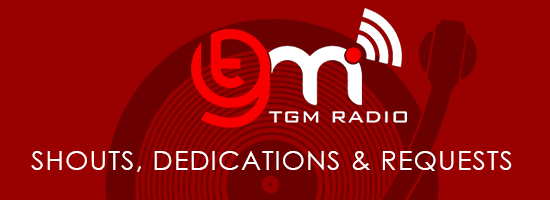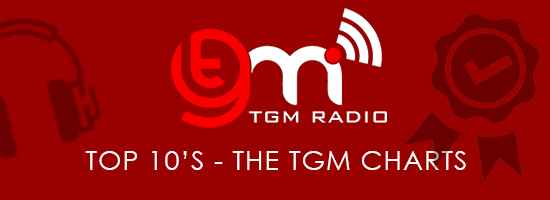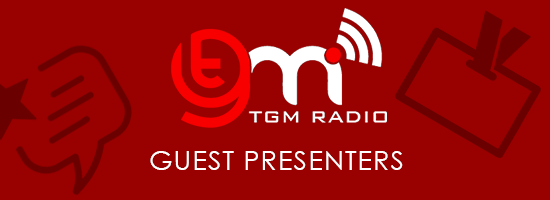“It’s so much bigger than just radio play”
January 17th, 2023For many young and unsigned musicians across the UK, BBC Introducing has long stood as a beacon of opportunity. After initially emerging in 2007, since 2009, users have been able to upload their music to the platform’s website, which is sent directly to BBC Radio producers and presenters. For artists working independently, or on shoestring budgets, BBC Introducing has continued to be a free and accessible way to get their voice heard – and has been pivotal to launching the careers of Little Simz, Blossoms and George Ezra. Crucially, it gives any upstart the chance to get national radio play based solely on the music. It is also often an excellent source of discovery for NME, too, as it puts underground artists directly in touch with a wider audience.
The backbone of BBC Introducing is its network of weekly local radio shows. Since January 2013, every BBC Local Radio station across England and the Channel Islands has broadcast a BBC Music Introducing programme on Saturday evenings, in order to showcase the wealth of new music being discovered outside of the UK’s major cities. Each of the 32 shows – which are separate from an additional seven various network shows across Wales, Scotland and Northern Ireland – reflects its local scene. At present, the BBC Music Introducing website receives in excess of 5,000 tracks from new artists a week; in 2022 alone, 19,666 new artist accounts were created on the platform, with 95,667 unique tracks uploaded.
Yet last week (January 13), BBC Local radio presenters took to Twitter to announce that there may be some significant changes made to BBC Introducing programming. Proposals seen by the presenters suggest that, if approved, 21 of the network’s individual local radio shows across England and the Channel Islands may either merge or cease to exist entirely, and the rest of support for artists may be shifted online.
“We are currently left wondering what will happen to our local BBC Introducing shows,” explains BBC Radio London presenter Jess Iszatt, who was an early champion of both Loyle Carner and Celeste on her weekly show. “We worry that artists, listeners and anyone else who benefits from BBC Introducing as a new music platform will not realise what’s happened until it is too late. Regionalising shows is just one step towards getting rid of them completely, and therefore cutting off a vital platform for new artists to get their music heard.”
Music fans have greeted the news with dismay, foreseeing potentially harmful consequences for the British music industry. In response, BBC 6 Music broadcaster Tom Robinson has launched a campaign in which he has encouraged listeners to post messages of support for local BBC Introducing presenters to his blog, in order to raise public awareness of the situation. “It would be devastating if these shows were cancelled. BBC Introducing makes [new music] accessible to listeners who wouldn’t otherwise hear these artists,” reads a comment from BBC Introducing Solent listener Jennifer Clark, neatly summarising the sense of community that these shows inspire.
Simply put, the future of the local BBC Introducing shows is in limbo. In a statement provided to NME, a BBC spokesperson said: “Our new local radio schedules will be announced in due course but they will not compromise the essence of BBC Introducing. We‘re committed to maintaining dedicated support for discovering and sharing the work of new talent at each of our 39 local radio stations. Local radio will continue to celebrate local artists and be an entry point for talent.
“We need to acknowledge the changing listening habits of audiences and the intention is to reach even more people. Every local radio station has a place on BBC Sounds which has a fixed Introducing slot featuring prominently with more content than radio schedules could ever accommodate. We also regularly feature Introducing tracks and artists on breakfast shows and that will continue too.”
At present, it’s unclear how the local BBC Introducing shows may be merged. Yet even if they are to become wider regional shows, the pool of talent that will successfully make it onto the airwaves in the future will likely become smaller. The current infrastructure preserves the autonomy of local radio, and eases some of the earlier upward steps musicians have to make by providing contacts, music education and gigs in places where opportunities are few.
The support from the local BBC Introducing show presenters doesn’t just stop at radio play. From here, artists are forwarded to BBC DJs to play on national radio, and they can also be put forward to play major festival stages such as Glastonbury and Reading & Leeds. Presenters and their production teams directly provide artists with continued airplay, interviews, gigs and sessions – making it possible for music to thrive in communities that are otherwise devoid of connections to the industry.
“When you’re putting yourself out there, receiving some validation of your work from a local BBC Introducing show can be a really important milestone,” Moa Moa drummer Matt Taylor says. In 2019, the Hertford band received their first-ever radio play on the BBC Introducing Beds, Herts & Bucks show, but Taylor points to Manchester quartet Porij as a “shining example of how [BBC Introducing] works as an ecosystem.” He describes the pride he felt watching the group make their debut Glastonbury appearance last year, having heard their music on the BBC Introducing Manchester show two years prior. “It was so inspiring,” he notes.
Lewis Whiting, guitarist of Leeds’ English Teacher, agrees that the continued support they have received from BBC Introducing has been “invaluable,” adding: “It’s the main thing local bands strive for: you can see that, from the past, local BBC Introducing airplay has produced results and made bands’ careers more tangible. It gave us a future.”
The relationship between local BBC Introducing show presenters and artists is not just symbiotic, but powerful. Iszatt tells NME that she was one of the first – and only – people to hear demo tracks from Mercury Prize-winning vocalist and poet Arlo Parks, who sent her earliest music to BBC Introducing London while she was still at school. Iszatt would go on to introduce Parks to her manager, before offering the Hammersmith-raised artist her first-ever festival slot on the BBC Introducing Stage at Glastonbury. Leeds-based DJ Emily Pilbeam concurs: “We relish in [artists] doing well. It’s not about us [presenters] at all, we’re just fans that do anything we can to push our artists to the next level.”
English Teacher are effusive as they describe their relationship with Pilbeam, who has been presenting the BBC Introducing slot in West Yorkshire for three years. “Local BBC Introducing DJs form a continued relationship with the artists that they play. [Emily] Pilbeam has been there since day one, and has always gone to our shows and offered us DJ sets,” says vocalist and guitarist Lily Fontaine, who describes how Pilbeam’s tireless support of English Teacher helped the art-punk quartet land their debut London headline show at the Lexington in December 2021.
Fontaine continues: “If [the BBC] merge different local shows together, which is what I think we’re planning to do, then someone like Emily wouldn’t be able to give as much attention to new bands if they’re from a large region such as Yorkshire; each individual band would get less attention, and in turn, be given less opportunities. The current system is democratic. Without it, we would lose the community feel of working with BBC Introducing.”
The local BBC Introducing shows are also arguably victims of their own success. Like many other youth-led radio programmes in the UK and across the world, they built an audience looking to easily access new music prior to the advent of Spotify. Now streaming services can introduce listeners directly to new artists via curated playlists and mixes. Mission accomplished, right? Well, not quite: instead, the passionate and knowledgeable radio presenters, the ones who built the story, are losing listeners to other services. RAJAR findings from Q3 2022 show that, for example, BBC Radio London has seen a 31% drop in listenership over the last year – a figure that certainly would have impacted the station’s local Introducing show.
Making the most of the local BBC Introducing shows has therefore never been more effective, or so important. “I’ve learnt that championing what you believe is good, pays off,” says Iszatt. “I’m proud of the difference we make for the artists who wouldn’t necessarily receive the fame of mainstream success, but are nevertheless incredibly talented and unique.”

Pilbeam similarly believes that the most essential aspect of her role is to continue sharing local artists’ success stories with her listeners, and in turn, build on a collective know-how, so that the next generation of musicians feel inspired to break the mould. Notably, she was part of the first team to listen to Yard Act via the BBC Introducing website in early 2020, two years before they released their debut album ‘The Overload’, which hit Number Two in the UK Album Chart.
“Limiting BBC Introducing to a regional show rather than a local [show] will make it so much harder for working class musicians to break through,” Pilbeam says, referring to the need for wider systemic change across the industry; in November 2022, a study published in the British Sociological Foundation found that only 8 per cent of UK creatives come from low-income backgrounds. “People are saying that the music industry isn’t London-centric anymore, but anyone that lives up North knows that that just isn’t true,” she continues. “The local BBC Introducing shows offer opportunities for people all across the country to succeed. BBC Introducing is so much bigger than just radio play.”
As the presenters and listeners continue to work towards protecting the distinct identities of their local BBC Introducing shows, what’s clear is that they are collectively refusing to let the effects of an evolving, engagement-obsessed industry impact their own listening and discovery habits. “Week in, week out, my team put together a good show and we are committed to championing our local scenes,” Pilbeam concludes. “Nothing will ever change that.”
Disclaimer/Note: TGM Radio’s latest news posts are a collection of curated and aggregated, fresh content from the best news sources across the globe.





